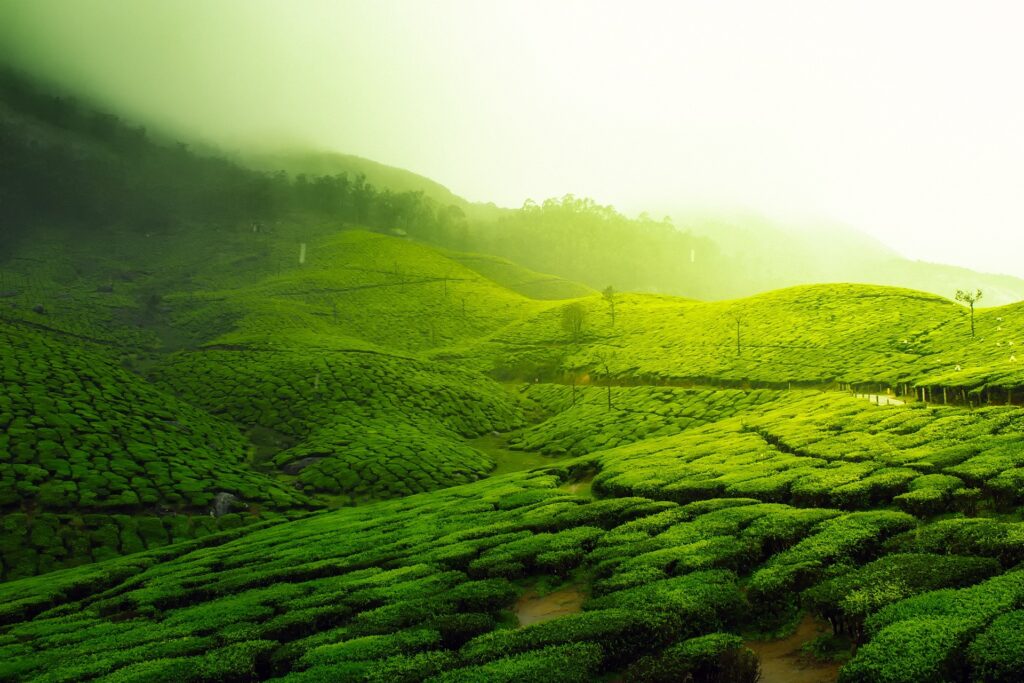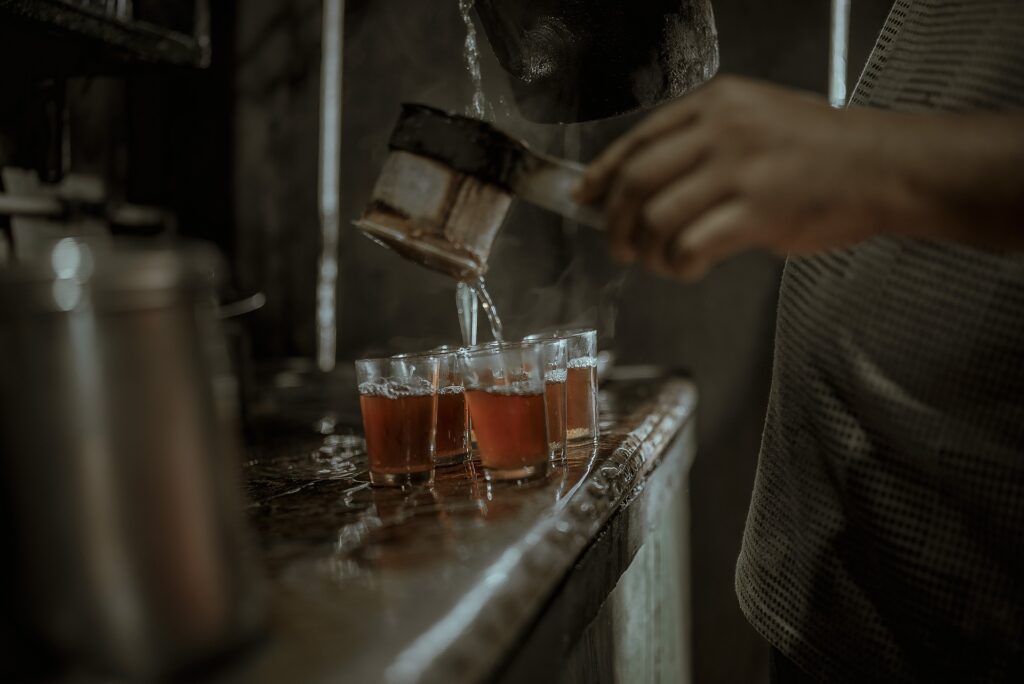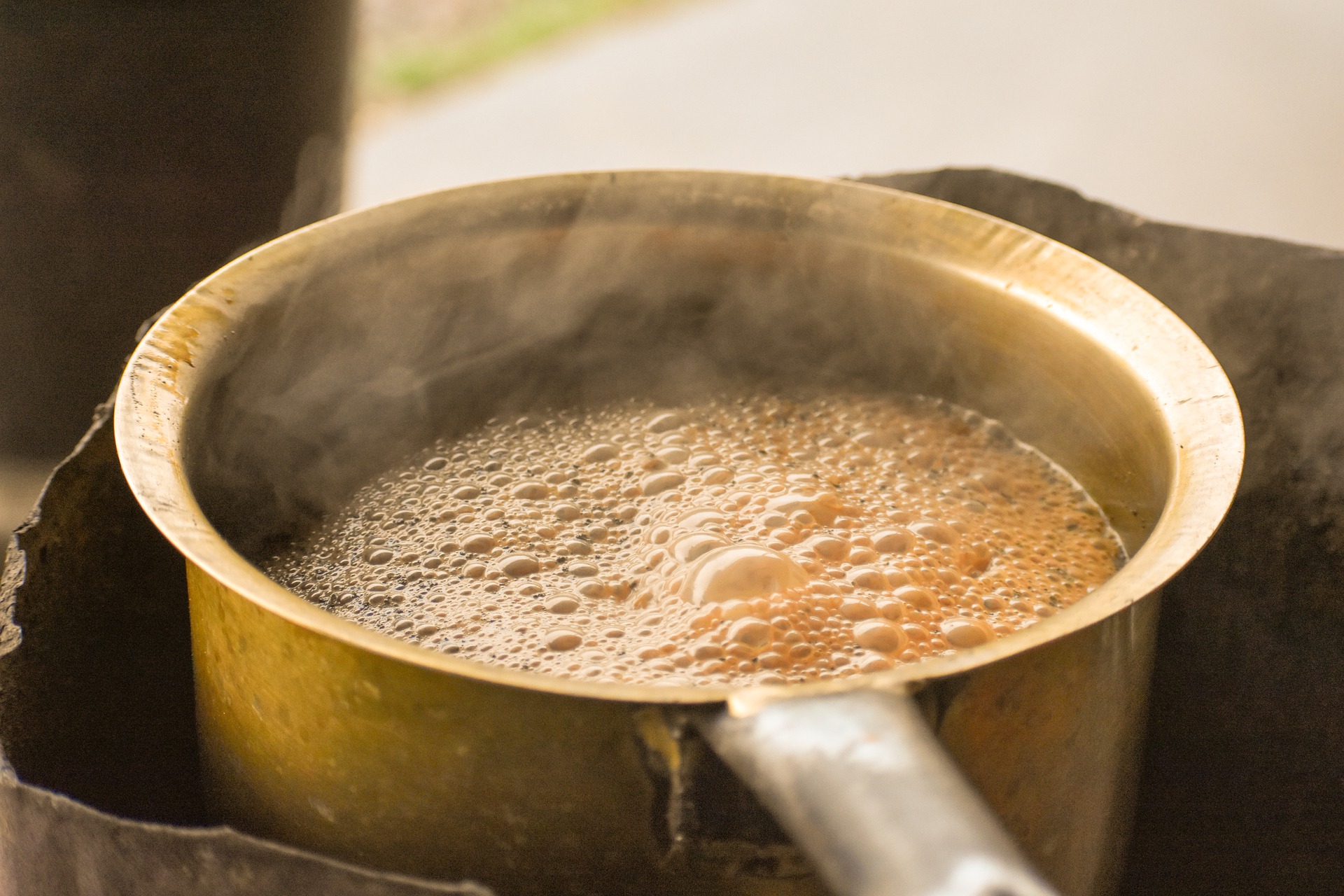The enchanting saga of the history of tea in India is an exquisite tapestry woven into the vibrant cultural fabric of this diverse nation. Steeped in tradition and flavored by centuries of rich heritage, the journey of tea in India resonates as a testament to its profound significance beyond being a mere beverage. From its humble origins to becoming an integral part of social customs, the story of tea unfolds as a chronicle that mirrors the evolution of a nation.
Table of Contents

1. Introduction to History of Tea in India
Tea’s prominence in India transcends mere consumption; it symbolizes warmth, hospitality, and tradition. The history of tea in India is a fascinating chronicle that intertwines with the country’s cultural heritage and economic growth.
1.1 Importance of Tea in Indian Culture
Tea holds a special place in Indian households, with its significance deeply rooted in social gatherings, daily routines, and traditional ceremonies. It has become an inseparable part of the social fabric, fostering conversations and connections among people from diverse backgrounds.
1.2 Brief Overview of History of Tea in India
The origins of tea in India trace back to ancient times when it was initially used for medicinal purposes. Its consumption gradually evolved, eventually becoming a staple beverage across the country.
2. Ancient Origins of Tea in India
The inception of tea in India finds its roots in ancient practices that revolved around medicinal herbs and natural remedies.
2.1 Introduction to Ancient Tea Practices
Since the beginning of tea’s culture in the history of tea in India, the use of herbal concoctions for medicinal purposes was prevalent. Tea was initially brewed using indigenous herbs and plants for its therapeutic properties.
2.2 Early Historical References of Tea in India
Historical texts and references like the Ramayana and the Atharvaveda mention the use of herbal infusions similar to tea for their healing attributes. These references mark the early presence of tea-like beverages in Indian history.
3. Tea Cultivation and Expansion
Tea cultivation in India witnessed significant advancements, leading to its expansion across various regions.
3.1 Development of Tea Plantations in India
The establishment of tea plantations in India can be attributed to the British East India Company, which introduced commercial tea cultivation in Assam during the early 19th century. This marked the beginning of organized tea production in the country.
3.2 Introduction of Tea Varieties in Different Regions
The diverse geography of India facilitated the growth of various tea varieties. Assam, Darjeeling, Nilgiri, and Kangra became renowned for producing distinct teas, each with its unique flavor profile and characteristics influenced by the local terroir.

4. Tea’s Role in Indian Society
Tea not only became a popular beverage but also ingrained itself deeply into the social fabric of Indian society.
4.1 Tea as a Social Beverage
Tea became synonymous with social interactions, fostering gatherings among friends, families, and communities. The ubiquitous “chai” stalls across cities and villages serve as social hubs where conversations flow over steaming cups of tea.
4.2 Rituals and Traditions Associated with Tea
Tea ceremonies and rituals vary across regions in India. From the elaborate chai-pakoda breaks in North India to the masala chai brewed with aromatic spices in the West, each region has its unique way of preparing and consuming tea.
5. Impact of British Rule on Indian Tea
British colonization significantly influenced India’s tea industry, shaping its production and global market reach.
5.1 British Influence on Tea Plantations
Under British rule, large-scale tea plantations were established, transforming India into one of the world’s largest tea producers. The British introduced modern production techniques and expanded tea cultivation beyond Assam to other regions.
5.2 Changes in Tea Production and Consumption During Colonial Rule
Tea became an essential export commodity during colonial times, contributing significantly to the British Empire’s economy. Simultaneously, tea consumption among Indians grew, albeit initially limited to the affluent classes due to its high cost.
6. Modern Indian Tea Industry
Post-Independence, India’s tea industry witnessed growth and faced evolving challenges in the global market.
6.1 Growth and Evolution of Tea Industry Post-Independence
After gaining independence, India focused on developing and expanding its tea industry. The establishment of tea boards in the history of tea in India as well as technological advancements, and quality enhancement programs contributed to increased productivity and global recognition.
6.2 Challenges Faced by Contemporary Tea Production
Despite its growth, the problems faced in the history of tea in India are still found in the modern Indian tea industry faces challenges such as labor issues, climate change affecting crop yields, fluctuating market demands, and sustainable production practices.

7. Tea Tourism in India
The emergence of tea tourism has provided a unique opportunity for tourists to explore India’s tea culture firsthand.
7.1 Emergence of Tea Tourism in Different States
From very start in the history of tea in India, states like Assam, Darjeeling, and Kerala offer tea plantation tours, allowing visitors to experience the cultivation process, pluck tea leaves, and engage in tea-tasting sessions.
7.2 Experiences Offered by Tea Plantation Tours
Tea estate visits not only offer insights into tea production but also provide picturesque landscapes, cultural experiences, and interactions with local communities, making it a holistic tourism experience.
Conclusion
In conclusion, the history of tea in India is a testament to its cultural significance, economic importance, and its journey from being a medicinal herb to a beloved beverage ingrained in the daily lives of millions. The evolution of tea in India reflects the country’s diversity and rich heritage.
FAQs
- What role did tea play in ancient Indian society?
- Tea was primarily used for medicinal purposes and gradually became a part of social rituals and gatherings.
- What is the impact of British rule on the history of tea in India?
- British influence led to significant changes in tea production, introducing large plantations and transforming India into a major tea producer.
- Are there specific health benefits associated with tea consumption in India?
- Yes, tea is believed to offer various health benefits, including antioxidants, improved digestion, and stress relief, among others.
- What challenges does the modern Indian tea industry face?
- Challenges include fluctuating weather conditions, labor issues, and evolving market demands affecting production and sustainability.
- How has tea tourism contributed to India’s economy?
- Tea tourism has boosted local economies, providing employment and attracting tourists seeking unique plantation experiences.

